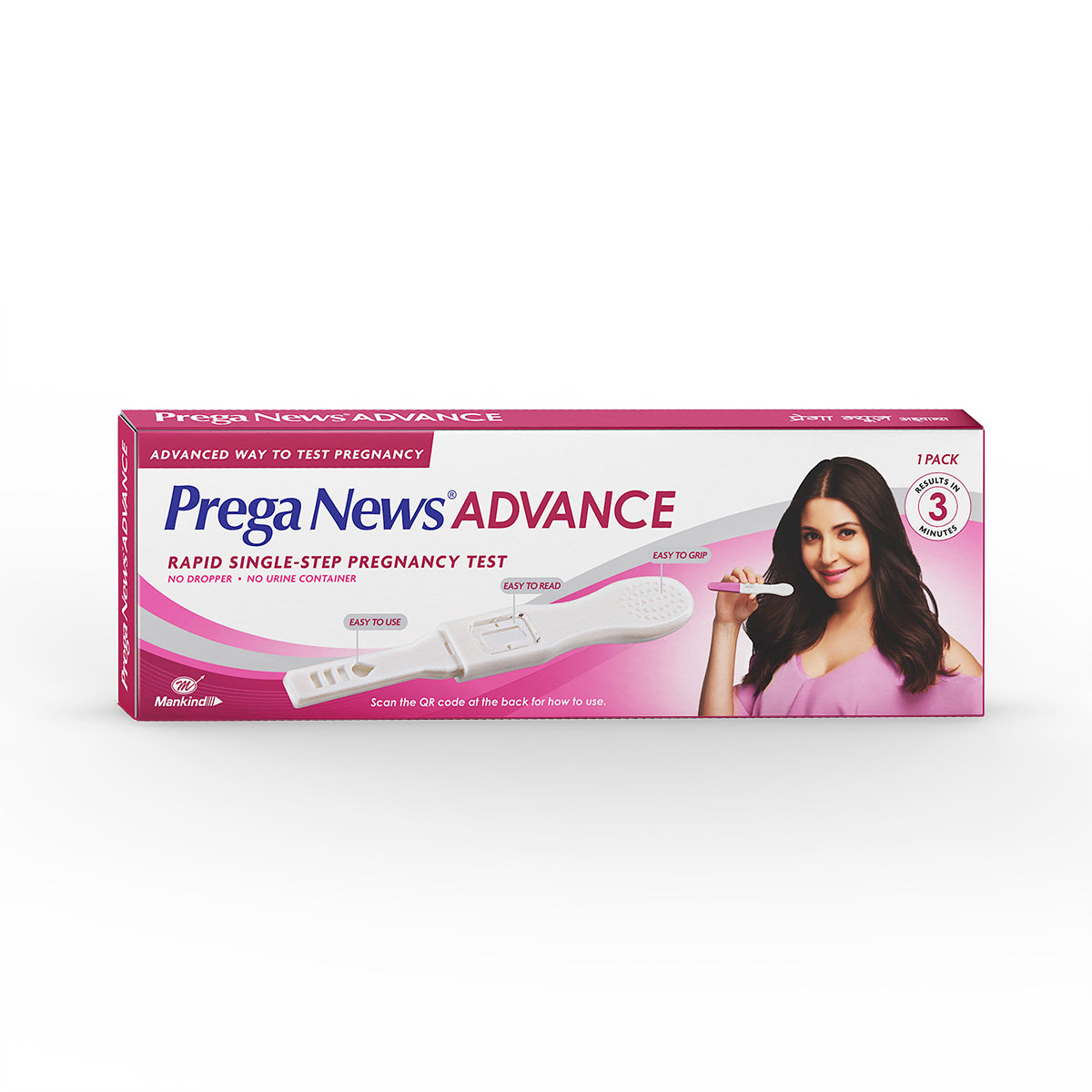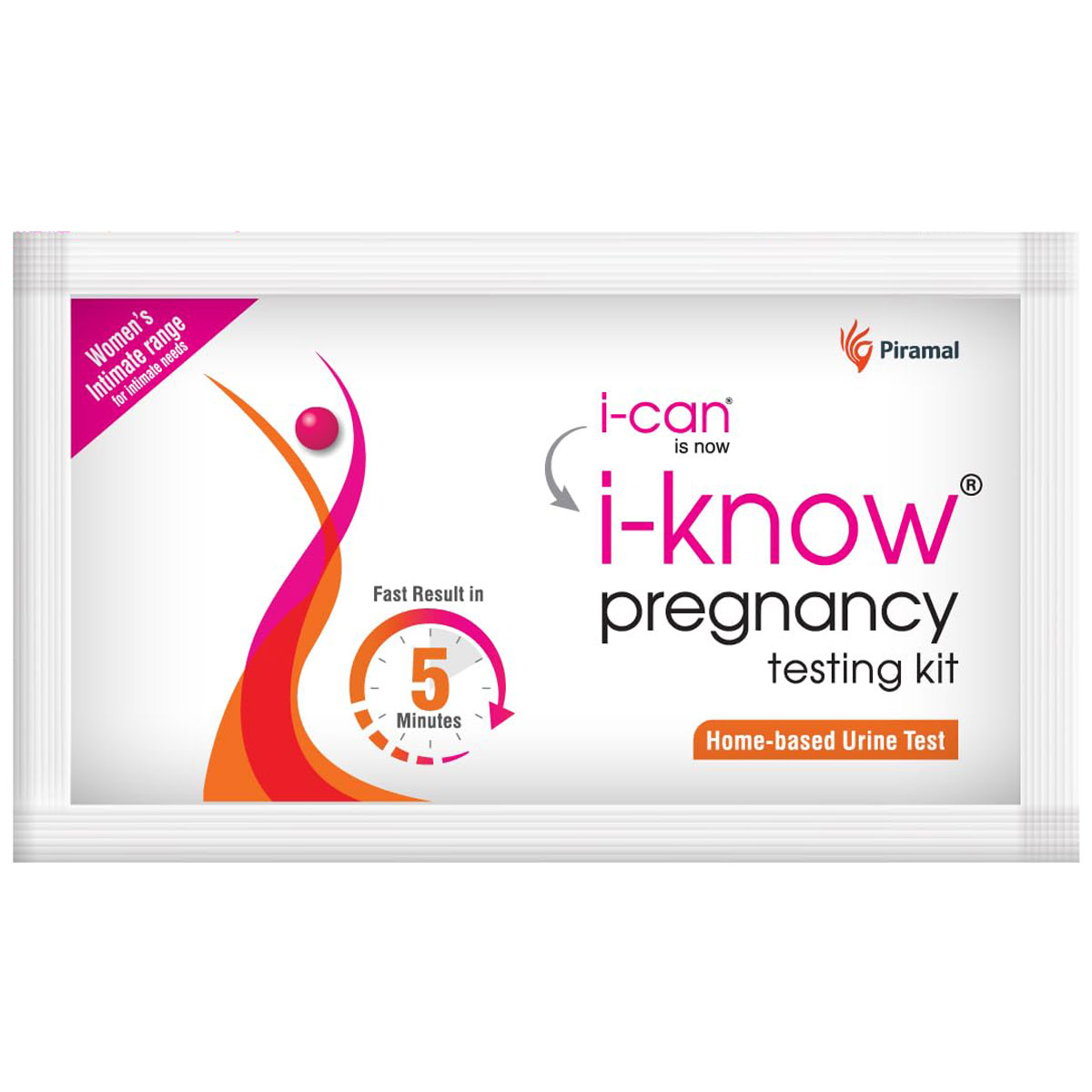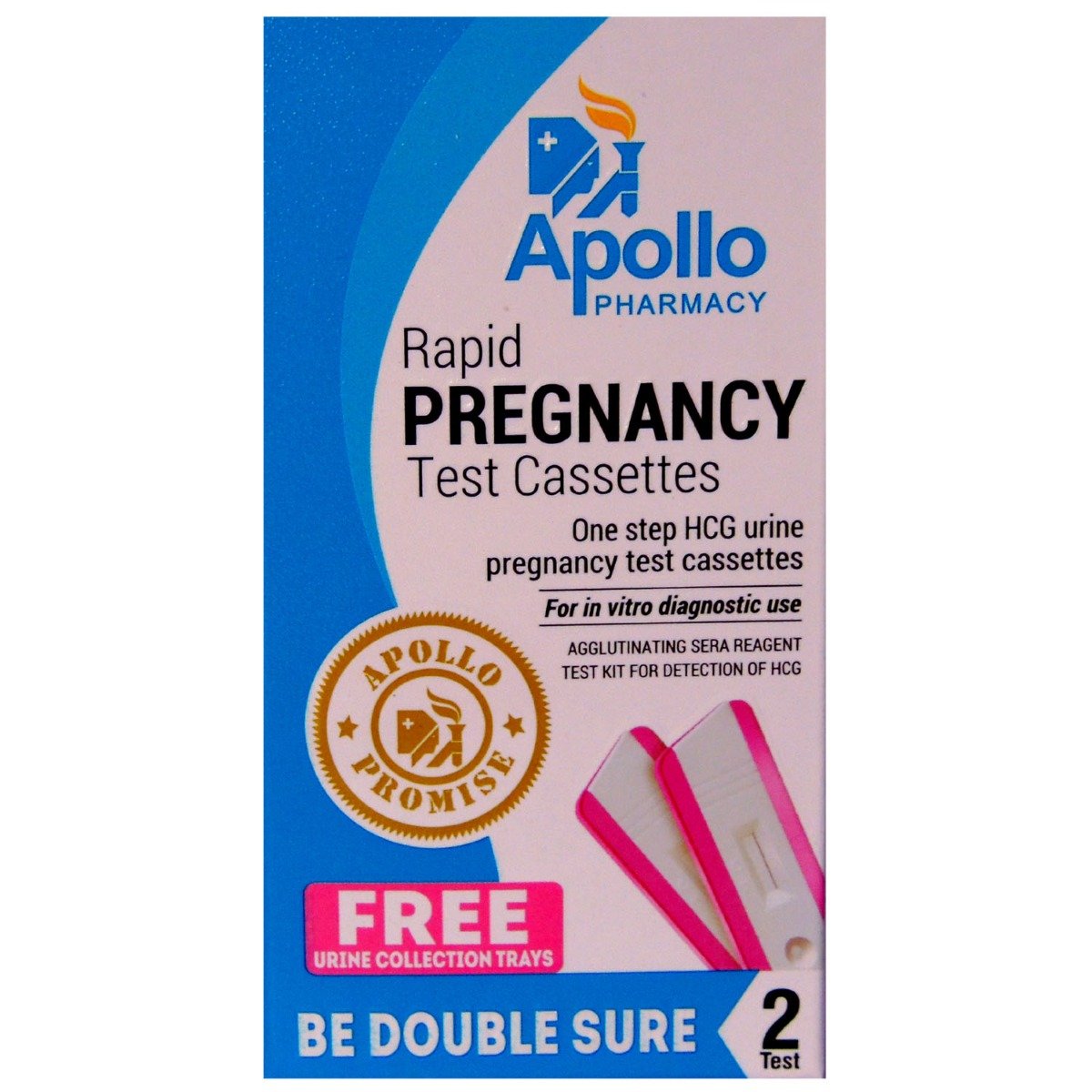- Home
- Health Devices
Pregnancy test Kit
Pregnancy test Kit
- Total Items (8)

Apollo Pharmacy Rapid Pregnancy Test Cassette, 1 Count
₹37.20
MRP ₹46.50
20% off

Prega News Pregnancy Test Kit, 1 Count
₹50.40
MRP ₹56
10% off

Apollo Pharmacy Instant Mid-Stream HCG Pregnancy Test Cassette, 1 Count
₹74.80
MRP ₹93.50
20% off

Velocit Pregnancy Test Kit
₹46.40
MRP ₹51.50
10% off
Get a pregnancy test kit from Apollo Pharmacy right at your doorstep!
Pregnancy is perhaps the most joyous phase of any individual's life. The idea of bringing a new person into the world is both an exhilarating and scary thought. If you have missed your periods, a pregnancy test kit can help!
The test kit checks your pee for the level of human chorionic gonadotropin (hCG). The body secretes this hormone after a fertilised egg attaches itself to your uterus wall. It happens 6 days after fertilisation, and the hCG level only doubles every 2-3 days.
Buy a pregnancy test kit from Apollo Pharmacy today and drive away all your pregnancy doubts!
Different types of pregnancy tests
Pregnancy tests are of two kinds – one uses a blood sample, and another uses a urine test.
The blood test is generally carried out at a doctor’s office. They can easily detect pregnancy earlier than test kits, within 6-8 days post ovulation. The results for the same take longer with home pregnancy tests.
There are two types of blood pregnancy tests:
- Qualitative hCG test: This test can detect pregnancy within 10 days of conception and tell you whether or not you are pregnant.
- Quantitative Hcg test: This test measures the exact hCG level in your blood. If there is any possible pregnancy-related trouble, it can keep track of it. Doctors usually order this test to rule out the possibility of ectopic pregnancy or miscarriage, where the hCG level falls drastically.
Besides blood tests, there is also a urine test - a stick that uses your urine to determine your pregnancy. They are easy to use, offer quick and accurate results, and you can take them at the convenience of your home.
However, even if the test confirms your pregnancy, you should see a doctor.
When is the right time to take a pregnancy test?
Taking a pregnancy test on the first day of your missed period is always good. It will ensure the accuracy of the test results. Try to take the test first thing in the morning since the urine is more concentrated at the time.
A pregnancy test is 99% accurate, but you can also take a blood test later to confirm the urine test results.
Frequently asked questions
While the home test kits are highly accurate, there are certain factors on which their accuracy relies:
- Whether or not you follow the proper instructions as provided by the test kit
- How soon you take the pregnancy test
- Your ovulation schedule and how quickly the egg implants itself
- The sensitivity of the home pregnancy test kit
Taking the home pregnancy test on the first day of your missed period is best. If you do not remember the due date for your next period, take the pregnancy test on the 21st day after you had unprotected sex. That's the most prolonged period you must wait for to confirm whether or not you are pregnant.
Not very likely. Sure, it's possible to get pregnant even a few days before your period strikes, but the chances for the same are not high. The fertilisation period lasts only 5-6 days every month, depending on your ovulation and when the egg is released from the ovary.
Sometimes women are left unaware that they are pregnant. This is because the usual tests are unable to detect the pregnancy. In such cases, women only realise that they are pregnant when they are either in their last trimester or undergoing active labour. Babies born from a hidden pregnancy may be underweight due to a lack of proper neonatal care.
Cryptic or hidden pregnancies are often caused due to one of the following reasons:
- The young age of the mother, like the early 20s
- Mental illnesses and learning disabilities
- Drug abuse in past
- Low-income family support



